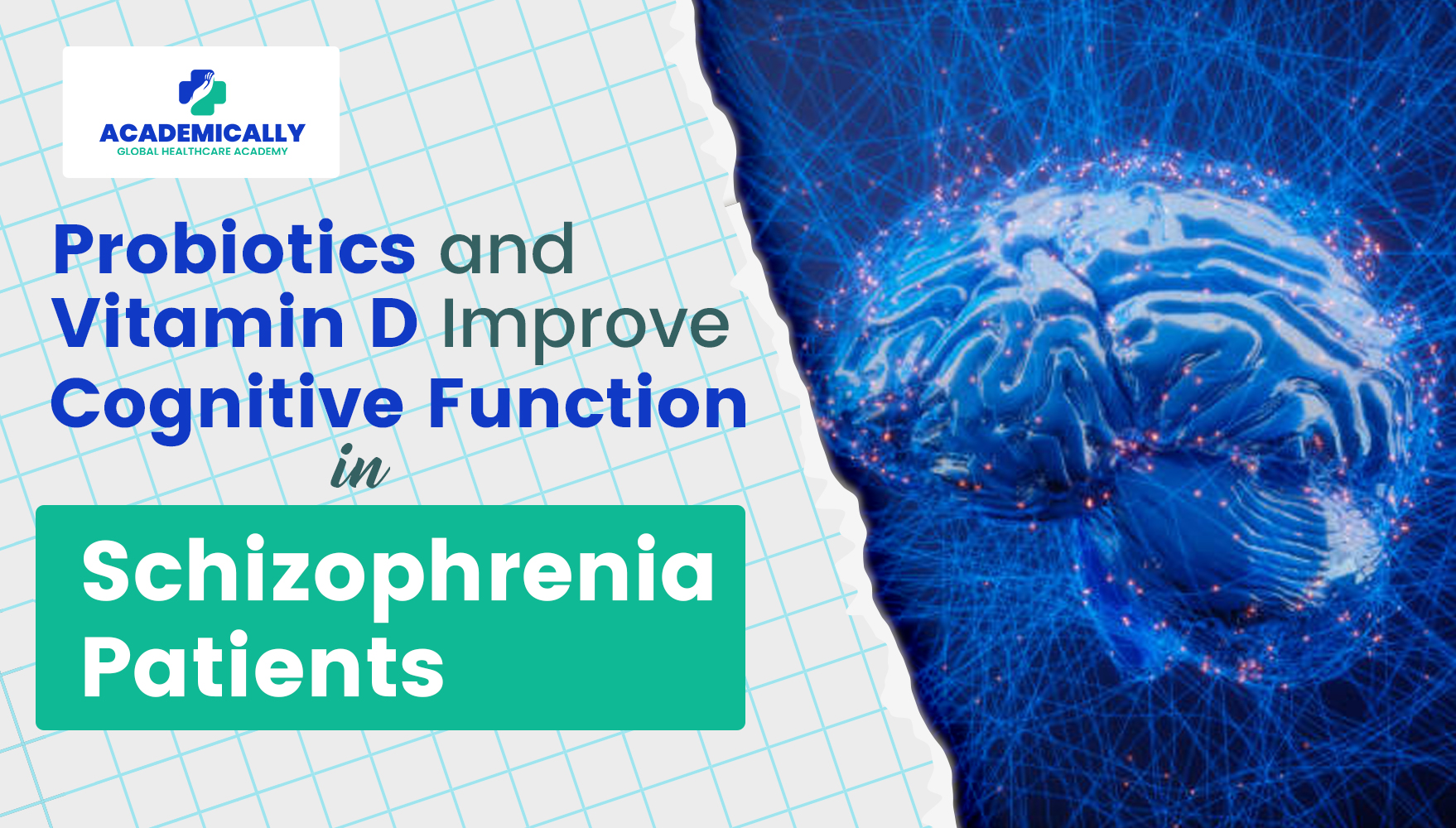Study Overview
The study involved 70 participants diagnosed with schizophrenia. These individuals were randomly assigned to receive either a daily probiotic supplement combined with 400 IU of vitamin D or a placebo over a 12-week period. The aim was to evaluate whether this combination could enhance cognitive function and relieve schizophrenia symptoms.
Assessment Methods
Researchers used two primary assessment tools:
- Positive and Negative Syndrome Scale (PANSS): This scale is commonly used to measure the severity of schizophrenia symptoms, including both positive symptoms (like hallucinations and delusions) and negative symptoms (such as lack of motivation and social withdrawal).
- Montreal Cognitive Assessment (MoCA): This tool is designed to evaluate cognitive function, covering various domains such as memory, attention, language, and executive functions.
Key Findings
The results revealed that participants who received the probiotic and vitamin D supplements experienced significant improvements in their MoCA scores, suggesting enhanced cognitive function compared to those in the placebo group. However, it is important to note that there was no significant change in PANSS scores for either group. This indicates that while cognitive benefits were observed, the supplements did not notably impact the broader spectrum of schizophrenia symptoms.
Benefit | Details |
| Improved Cognitive Function | Taking probiotics and vitamin D together can help improve memory, attention, and thinking skills in schizophrenia patients. |
| Supports Gut and Mental Health | Probiotics promote a healthy gut, which can influence mental well-being. Along With Vitamin D these benefits multiply. |
| Alternative Treatment Option | This combination offers a non-invasive option to help with cognitive symptoms in schizophrenia. |
Study Limitations
While the findings are promising, the study does have certain limitations:
- Baseline Vitamin D Levels: The researchers did not account for the initial vitamin D levels of participants, which could influence the outcomes.
- Medication Interactions: The potential reactions between the participants' existing medications and the supplements were not thoroughly studied.
- Symptom Severity: Despite cognitive improvements, the lack of change in PANSS scores underscores the need for more comprehensive studies.
Dr. Gita Sadighi, the study's co-author, highlighted the potential of probiotics in influencing gut health, which may in turn affect mental health. This study suggests that probiotics, in combination with vitamin D, might provide a new approach to treating cognitive symptoms in Schizophrenia. However, more research is needed to fully understand how this works and to address the study's shortcomings.
Conclusion
This study is a major achievement in finding new ways to help people with schizophrenia improve their thinking skills. It shows that Probiotics taken along with Vitamin D might be beneficial in treating mental health and neurodegenerative disorders. These results encourage doctors and researchers to look at how gut health can affect brain function and mental health.
At Academically, we ensure you stay updated with all the current developments in medical science. We also help you achieve your dreams of becoming a doctor, pharmacist, dentist, nurse, or any other healthcare provider in your dream country, be it Australia, New Zealand, Dubai, Ireland or the UK. Visit Academically to learn more.



